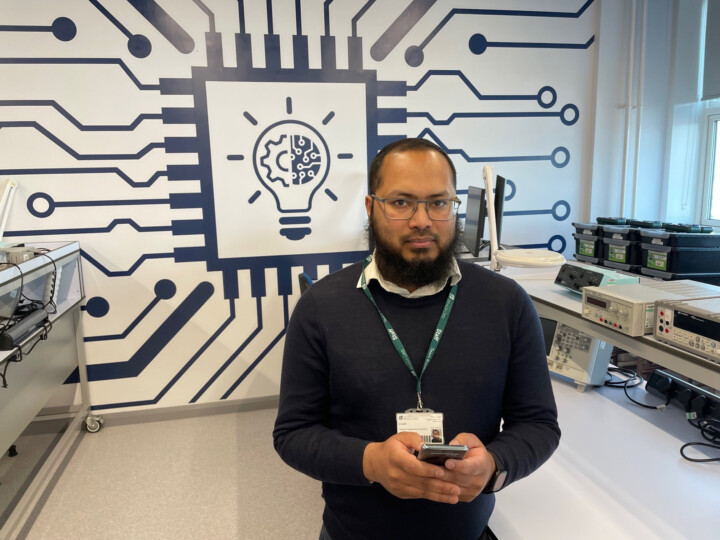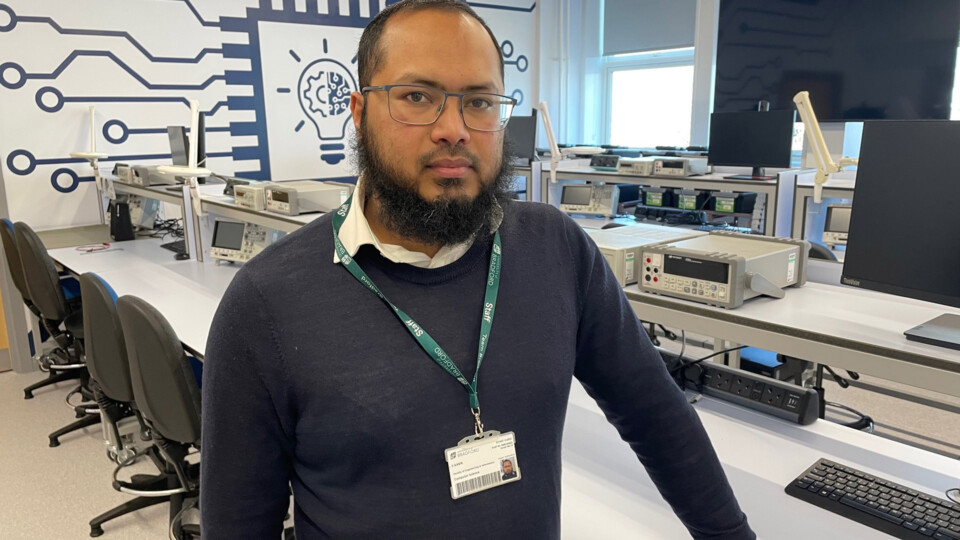Seven tips to keep your smart devices at home safe from hackers
Smart devices in people’s homes have surged in popularity over the last 10 years, items including video doorbells, smart speakers and smart kitchen appliances becoming part of everyday life.
Smart devices can be monitored and controlled remotely by the homeowner through apps on their mobile phone.
But research has revealed that smart home devices are now subjected to an average of 10 attacks per day.
In 2023, the most vulnerable categories included Smart TVs (34% of vulnerabilities), Smart plugs (18%) and Digital video recorders (13%).
Dr Sohag Kabir, Associate Professor at the University of Bradford’s School of Computer Science, Artificial Intelligence and Electronics, has given homeowners tips to keep their devices as safe as possible from the threat of hackers.
- Change Default Passwords Immediately: Don’t leave the factory-set password on your smart TV, camera, or plug. Use strong, unique passwords that you don’t use elsewhere.
- Don’t Re-use Passwords Across Devices: If one account gets hacked, reused passwords can give hackers access to everything else — including your smart home.
- Update Devices and Apps Regularly: Just like phones or computers, smart devices get security updates. Install them as soon as they’re available to patch known holes.
- Use Strong Wi-Fi Security: Set your Wi-Fi to use Wi-Fi Protected Access 3 (WPA3), or at least WPA2 encryption, and use a strong, unique password for your network.
- Turn Off Features You Don’t Use: Disable remote access, voice control, or Bluetooth if you’re not using them — fewer features mean fewer ways in.
- Buy from Reputable Brands: Choose devices from trusted manufacturers who provide regular updates and support. Cheap no-name gadgets often come with poor or no security.
- Keep an Eye on What’s Connected: Regularly check your router’s admin page or app to see which devices are connected. Remove anything unfamiliar.
Dr Kabir also revealed ways hackers can carry out cyber-attacks on devices in our homes such as smart TVs or smart plugs.
He said hackers can guess weak or default passwords and urged people to change them.
Hackers can also exploit outdated software in smart devices and if they don’t have built-in security, they are vulnerable to attacks.
The University of Bradford has teamed up with the Universities of Sheffield and North Texas and National University of Singapore on its research into Internet of Things, a network of internet-connected smart devices used in homes, and artificial intelligence (AI).
PhD students in Bradford’s School of Computer Science, AI, and Electronics focus on leveraging computational intelligence, including AI, to ensure the safety and security of IoT-based systems [smart technology].

Dr Sohag Kabir, Associate Professor at the University of Bradford’s School of Computer Science, Artificial Intelligence and Electronics, has given ways to protect home smart devices from hackers. Images credit: University of Bradford
Different is what we do
UNIDENTIFIED – Creating new opportunities
The University of Bradford is a world leader in the application of machine learning and artificial intelligence, working closely with industry worldwide to translate academic knowledge into real-world impact.
Work on the Internet of Things and smart technology are some of the ways the University of Bradford is helping to identify new opportunities.
Using the latest technology and expertise, we are finding ways for AI to help save lives by identifying and assessing donor organs.
Professor Hassan Ugail, Director of the Centre for Visual Computing and Intelligent Systems, is part of OrQA (Organ Quality Assessment), which is using artificial intelligence (AI) to speed up organ transplants in a bid to save lives and money. Find out more on our website

